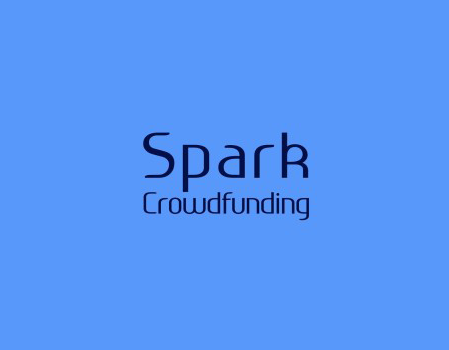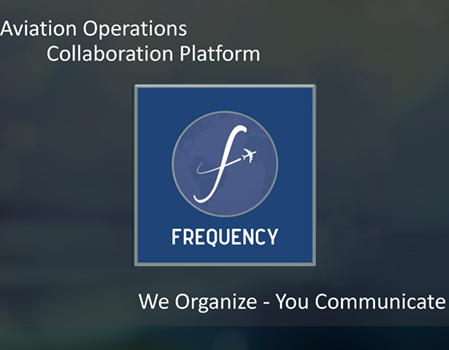
Frequency – Spark Crowdfunding
May 25, 2020
When does Frequency come into play? … Part 1
June 4, 2020New funding rules are helping small businesses plan for a future beyond the Covid-19 crisis
Sandra O’ConnellSunday May 31 2020, 12.01am BST, The Sunday Times

In business the right funding at the right time can be transformative. Velvet Cloud, a Mayo-based producer of sheep’s milk products, saw its sales halve overnight as a result of Covid-19. Securing funding to take the business online helped safeguard its future. “Half our business is to restaurants and half to retailers. Food-service orders stopped,” said Aisling Flanagan, who co-founded the business with her husband, Michael. The couple already had a brochure website. To regain sales they needed an e-commerce one.
A trading online voucher from their local enterprise office enabled them to transform the brochure website into an e-commerce one. The vouchers are worth €2,500. Before Covid-19 small-business owners had to match the government stake on a 50-50 basis to get a voucher. In response to the pandemic, the rules changed. Small businesses now have to provide only 10% of the cost.
Being able to sell directly to consumers has been a huge boon for the Flanagans. “The online shop hasn’t yet clawed back what we have lost, but on the plus side the money from online sales is in your account 48 hours later, so our cash flow has improved,” said Flanagan. “It also means we are opening up to markets we couldn’t get to before. Previously, to buy our products in a shop you had to be in Dublin or Mayo. Now we are selling from Donegal to Dingle.”
Liquidity is a significant issue for many businesses right now, as trading in many sectors remains stalled. Enterprise Ireland has launched a suite of supports to help businesses, including those that are not client companies.
A €5,000 financial-planning payment is 100% grant-aided to allow small-business owners to hire a financial consultant to draw up a business plan. An Organisation for Economic Co-operation and Development report warned last year that Irish small and medium enterprises were weak on financial planning. This helps to rectify the problem at a critical time.
A new €180m Sustaining Enterprise Fund is designed to boost short-term liquidity, providing up to €800,000 to help with cash-flow problems. Its five-year term requires no repayments until the final two years. There’s a version for smaller firms, SEF-Small Enterprise, which provides a quick capital injection of up to €50,000. The government’s Restart Grant provides grant aid of up to €10,000, based on either a waiver or rebate on commercial rates bills for 2019.
More funding is due from the Strategic Banking Corporation of Ireland (SBCI), which was set up six years ago to provide low-cost credit to SMEs. Its Covid-19 working-capital scheme loans are available through AIB, Bank of Ireland and Ulster Bank, but are subject to each bank’s credit policies and procedures.
You cannot apply for the loan until you have received an eligibility letter from the SBCI. To date the corporation has issued 2,400 of them in a process taking about 48 hours to complete. Of the total €200m fund value, €34m has been drawn down, with a further €10m in applications being processed.
Private equity funds are still looking for opportunities. For businesses, this can present a more “resilient” option than debt, according to Mark Flood, of Renatus, a private equity company. “Businesses in tech, healthcare, pharma and food are forging ahead, and many are ready to go from a private equity perspective,” he said. Good businesses in general manufacturing remained appealing. “One quarter’s normal trading behind them and they’ll be fine.”
For others, particularly businesses in travel and leisure, Flood believes private equity firms will opt for a wait-and-see policy, possibly for 18 months. Many SMEs depend on business angels for equity investment, particularly at start-up stage. First-quarter investments largely went ahead as planned, “because most of the heavy lifting was already done”, said John Phelan, all-island director of the Halo Business Angel Network.
Since then, angel investors have held back. “Quite a few deals were pushed out. They’re not dead, but it’s a question of ‘let’s just wait and see what happens’,” he said. Companies that had hoped to secure investment should “hunker down and develop a new business model, pricing structures, supply chains, so that when things ease you’ll be ready to go”, said Phelan. “If you’re a good company with a good proposition and a good team going out into the ‘new normal’, it’s actually a really good time for angels to invest because valuations are down, so there will be deals to be picked up.”
At the start of this year Liam Darling and Fiona Moloney had a business angel waiting in the wings to help fund their start-up, HaloSOS. It provides personal security systems for hotel housekeeping staff, as increasingly mandated by American states. When Covid-19 struck, their angel pressed pause. “That did us a favour, in so far as it forced us to stop concentrating on funding and start concentrating on selling. The result is that we are a much stronger investment proposition now,” said Darling, who is about to launch a funding campaign on Spark, an equity crowdfunding platform.
“That will enable us to get our first nine, 300-plus-bedroom hotels on board. We have venture capital and family offices that are interested in investing, and have told us to come back to them,” said Darling, who is optimistic, particularly as American hotel-occupancy rates start to rise.
Even though aeroplanes are still largely grounded, that suits Justin Perry, of Frequency, which is also raising funds. He and his co-founders, all pilots, developed an aviation communications product designed to replace the eight forms of communications used in cockpits. Some, such as VHF radio, are 100-year-old technologies, while other communication is of poor quality. “It’s crazy. It’s why passengers behind us on their mobile phones can often find out about the reasons for delays before we do,” said Perry.
Frequency’s funders include the Propeller Shannon incubation programme and, through it, aircraft manufacturer Boeing. It has also secured funding from Zoosh, a midlands-based venture capital fund, as well as from business angels. It, too, has launched on Spark as part of a bid to raise seed funding of €500,000, providing a runway to take it through to initial sales in nine months’ time when, Perry reckons, the airline industry will be cleared for take-off again.
“Our problem before was that the aviation industry was just so busy. Now we are interviewing people in airlines, such as Aer Lingus and Jet Blue, who previously didn’t have the time to talk so, for us, it’s a massive opportunity.”
Frequency in The Sunday Times
Frequency at Spark Crowdfunding




